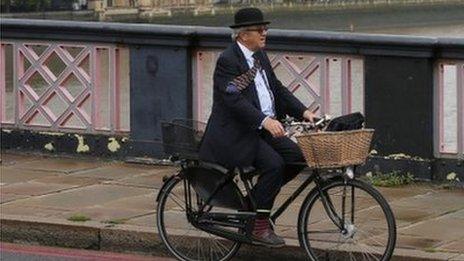What's the Tube strike really about?
- Published
- comments
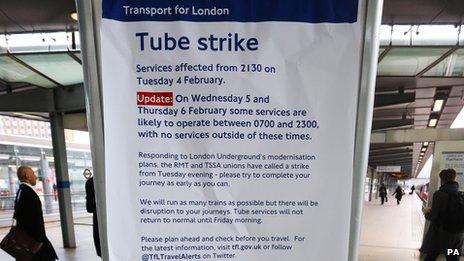
The roots of this week's strike over ticket office closures go back as far as 2010
The changes facing the Tube - the closing of all ticket offices - are some of the most radical in its history, up there with the introduction of the Oyster card.
It's no surprise the unions have baulked at the scale and the speed of the changes.
During Ken Livingstone's tenure as mayor, they opposed the closure of ticket offices and the reduction of ticket office opening hours.
As well as moving staff from behind ticket offices onto gate lines - driven by Oyster & eventually bankcards - there will be 950 fewer staff on the network and this would save £40m a year.
'No compulsory redundancies'
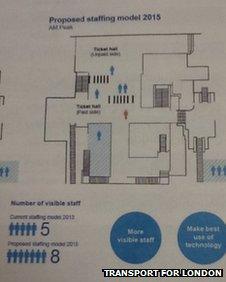
How staffing at a large Tube station would work after ticket offices are closed
However, 200 jobs could be created if the 24-hour weekend Tube service goes ahead, but that is some way off.
Closing the ticket offices would open up lucrative space to retail and London Underground (LU) needs to raise millions in extra revenue after its Government grant was cut.
Transport for London, external (TfL) says 450 staff have come forward so far asking for voluntary redundancy. It says there will be no compulsory redundancies but that is on the proviso staff remain "flexible".
Despite this, there are genuine concerns from the RMT , externaland the TSSA, external about safety and reducing workforces.
In fact, in LU's own documents it says "particular attention" with regards to risk will be paid to lone working and the restructuring is considerable.
Take 125 "local" stations like Greenford. At the moment they have two staff but that will be cut to one staff member and one supervisor who covers six stations.
How will the one staff member deal with an issue late at night on their own?
At 28 "destination" stations like Embankment the number of staff actually goes up in the ticket hall from five to eight.
Poor industrial relations
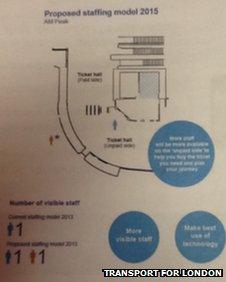
How a smaller local station would be staffed after ticket office closures
What many will be asking is how did it come to this? Why didn't the Mayor and LU management smooth this transition?
The reality is the roots of this are in the last big dispute in 2010 over ticket office opening hours, external and the result of that has affected industrial relations.
Then LU got the reduction of some ticket office opening times but they steamrollered the changes through and the unions' strikes were powerless to stop it.
The same outcome could happen this time and since then not much has been done to build bridges - admittedly with a union that can be militant.
A pertinent point is the first time Bob Crow and the mayor spoke for five years was this morning on a radio phone-in. Will anyone argue that is a good way to conduct industrial relations?
The success of transport during the Olympics seems a long, long time ago and more strikes are planned for next week. Let me know your thoughts.
- Published4 February 2014
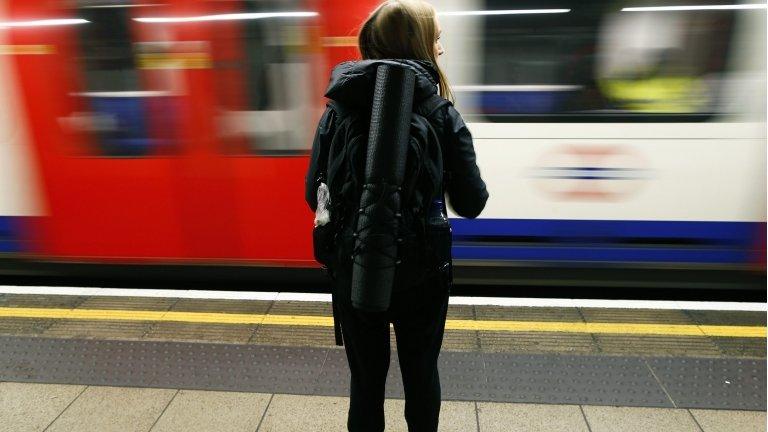
- Published28 April 2014
